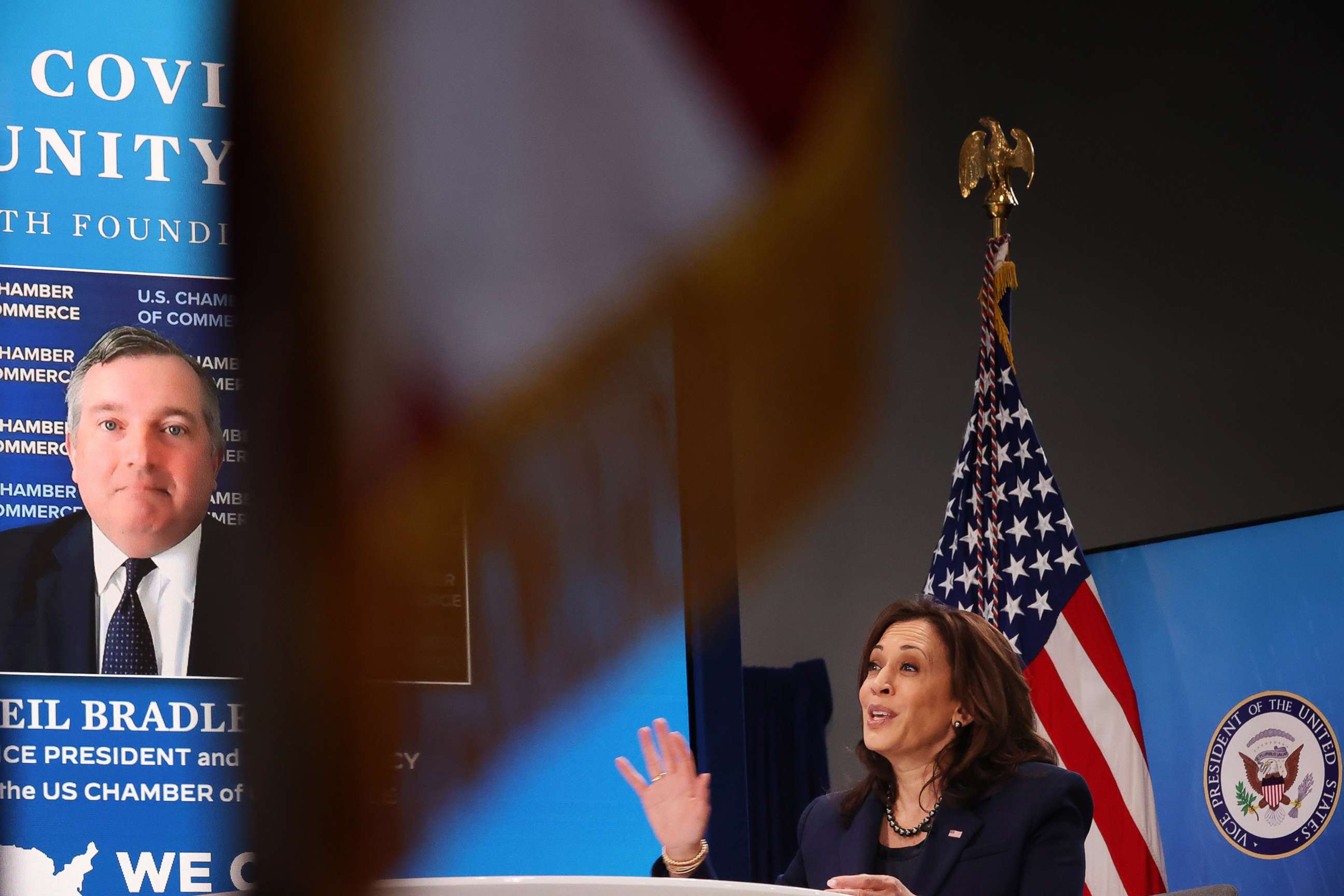Biden administration calls in grassroots leaders for COVID vaccine education campaign
The administration is calling it the COVID-19 Community Corps.
The Biden administration has announced a new effort to combat vaccine hesitancy and dispel misinformation that will employ leaders from churches, unions and nonprofits.
Vice President Kamala Harris, who held an inaugural meeting Thursday morning with the community leaders tapped for the new program, will supply up-to-date public health resources and open up a line of communication between 275 grassroots groups on the ground and the federal government. The administration is calling it the COVID-19 Community Corps.
"No matter the community, trusted leaders are the best way to boost confidence. And trusted leaders -- you -- are the best way to deliver information," Harris told the members of the COVID-19 Community Corps at a video conference on Thursday.
The group of leaders represent communities where vaccine hesitancy or access to vaccines remains a challenge. As Harris acknowledged Thursday, the U.S. has not rolled out its vaccine program equitably and has struggled to reach areas in rural America and among minority communities, where distrust in medicine and the government is part of the problem, but access to vaccines nearby and clunky registration systems have compounded the issue.
"In some communities -- some of our hardest-hit communities -- it's too hard to access the vaccine or get information about it. And we have to be honest about that. We certainly are," Harris said.
"We have to be honest that in some communities, there is a concern about getting vaccinated, some based on mistrust based on history, some based on -- just rooted in misinformation, of which there is a lot out there. And we need your help to combat that," Harris said.
Hyepin Im, a member of the Corps and the founder and CEO of Faith and Community Empowerment, told the group she planned to connect her organization's 400,000 churches to the government's resources. She also spoke about the importance of getting the vaccine to Asian Americans, many of whom are doctors and nurses who everyday fight the virus -- and discrimination because of the virus.

"I just want to lift this up, use us, leverage us. We have the space, we have the volunteers, we have the heart and we have the trust," Im said at the conference.
Dr. Reed Tuxon, a co-founder of the Black Coalition Against COVID, a group formed by doctors and nurses to fight the racial disparities in health care that the pandemic has exacerbated, said he had already seen the power of the group's work and was eager to push forward with support from the federal government.
"We can tell that the polling over the last several months has flipped from 70% negative in the Black community wanting to take the vaccine to now down to 28%. And we know that the people in the middle are definitely reachable," Tuxon said. "We see April as the critical month in this flat out race to the finish line."
U.S. Surgeon General Vivek Murthy, also appearing remotely, told the group they would help save lives.
"Hearing the facts from trusted sources is what will help people make good decisions about their health,” Murthy said. “And that's why I firmly believe that your involvement will save lives.”
The Department of Health and Human Services, which is running the education campaign, also will supply funding for the new outreach program. Last week, HHS announced nearly $10 billion will go toward increasing vaccine access in hard-hit vulnerable communities, including $3 billion in Centers for Disease Control and Prevention funding to support outreach.
The program's leaders will be aided by a social media campaign and bilingual ads, which HHS will air on TV throughout April.




